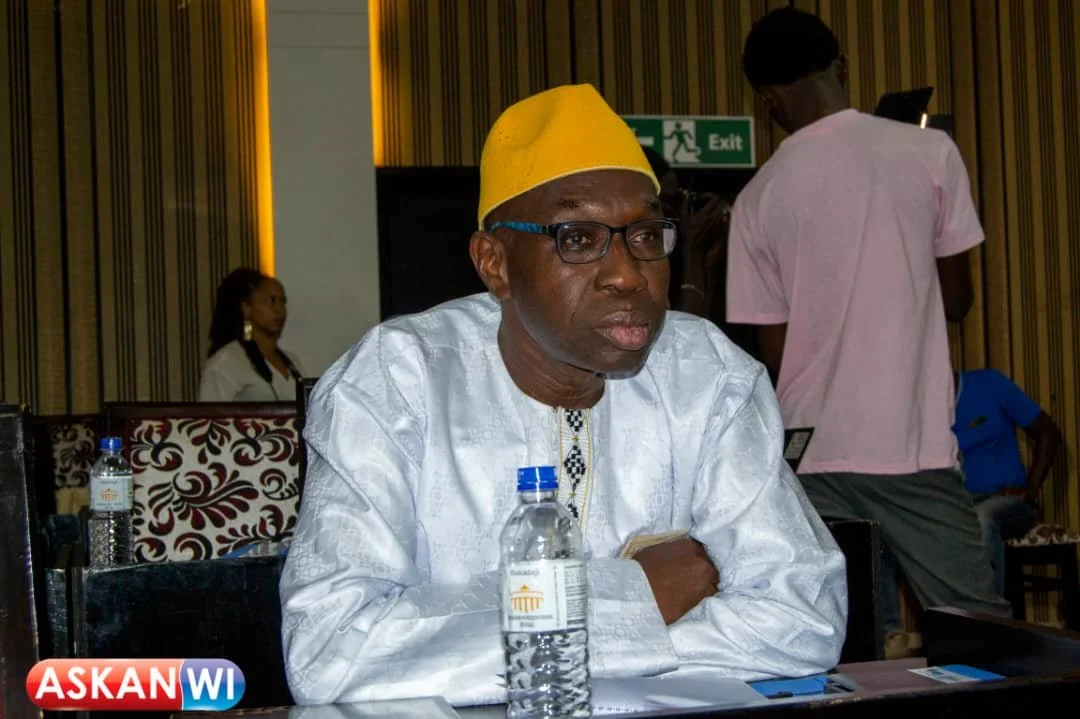WAVE Observes International Day in Support of Victims of Torture with Stakeholders’ Dialogue
NHRC Vice Chair Ms Jainaba Johm © Askanwi
By Edward Francis Dalliah
The Women’s Association for Women and Victims’ Empowerment (WAVE), in collaboration with the National Human Rights Commission (NHRC) and the Association for the Prevention of Torture (APT), commemorated the International Day in Support of Victims of Torture on Thursday, 26th June 2025, with a Stakeholders’ Dialogue held at Bakadaji Hotel.
The event, funded by the National Endowment for Democracy and the Legal Empowerment Fund, was held under the theme “Healing through rehabilitation, restoring dignity and promoting accountability.” It brought together survivors of torture from the former President Jammeh's regime, human rights advocates, civil society actors, representatives from law enforcement, and the judiciary.
Speaking at the opening, NHRC Vice Chairperson Ms Jainaba Johm emphasised the importance of the day. She remarked that it is “a day to support [and] to remember victims of torture and to reaffirm the absolute prohibition of torture in The Gambia.”
Legal Reforms and the Legacy of Abuse
During the 22-year rule of former President Jammeh, The Gambia had no specific law prohibiting torture. However, that has changed under the administration of President Adama Barrow, which ratified the UN Convention Against Torture in 2018. In a significant step forward, the country domesticated the treaty with the enactment of The Prevention and Prohibition of Torture Act in 2023, the first law explicitly outlawing torture in The Gambia.
The Act criminalises acts of torture not only by state security officials but also by private individuals. It carries penalties, including prison terms and fines of up to one million dalasi, depending on the nature and severity of the offence.
Delegate at Stakeholder Engagement © Askanwi
Truth Commission Findings and Accountability
The now-defunct Truth, Reconciliation and Reparations Commission (TRRC) documented widespread torture during Jammeh’s rule, often carried out under the pretext of extracting confessions or punishing dissent. Testimonies revealed that the National Intelligence Agency (NIA) and other detention facilities were used as torture chambers, where detainees were forced to confess under extreme duress. Although the Prevention and Prohibition of Torture Act cannot be applied retroactively to prosecute perpetrators from the former regime, legal accountability is still being pursued abroad.
In April 2025, Michael Sang Correa, a former member of Jammeh’s elite hit squad known as the “Junglers”, was found guilty of torture by a U.S. federal court in Denver, Colorado. The verdict followed years of advocacy and investigative work, including coverage by Askanwi editor Yusef Taylor. Similarly, in 2024, a Swiss court convicted former Gambian Interior Minister Ousman Sonko of crimes including torture. He was sentenced to 20 years in prison in what was hailed as a landmark case for international justice.
Read more on universal jurisdiction cases in the link below. https://www.askanwi.com/universal-jurisdiction-cases
WAVE Training Group Photo © Askanwi
Training Security Forces Against Torture
As part of efforts to prevent future abuses, WAVE recently conducted a four-day training with police officers in which a senior police officer stressed that “torture is a no-go area.” He also told the participants that “torture-related matters are off-limits for the police, and the office of the IGP will not take it lightly.”
Ongoing Concerns
Despite these efforts and legal reforms, reports of torture and abuse in detention centres persist. Human rights advocates, including WAVE, continue to call for systemic reform, stronger oversight mechanisms, and better enforcement of existing laws. As The Gambia navigates the difficult process of security sector reform, the commitment to justice and human dignity, especially for victims of past and present abuses, remains a pressing challenge.



